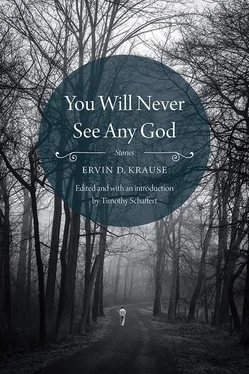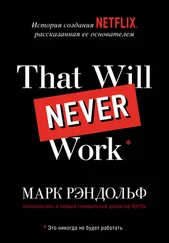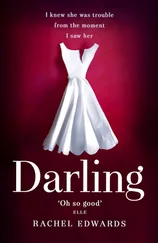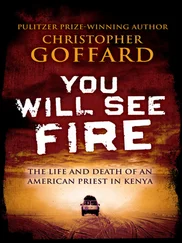The low strange sound awoke him; it was a heavy sound, like a groan or a sigh and he heard it dimly and listened and it was close to him. He thought of men coming in search for him, with shovels and strength to free him, but the sound was too strange and too heavy and he knew then it was himself, breathing, and he could listen to himself as from a distance. He moved his body slightly and the instant pain shot through him and seemed to burst in fire through his skull. He was truly awake then, and the heat was very heavy upon his face. He knew he was badly burned and he tried to pull his shirt up to cover his face, but he could not pull it far enough and if he moved too much the pain from his legs came driving up so that he could not do anything. Breathing was beginning to be hard for him now. The sun had moved slightly, he thought, for the reflection from the tractor was dull, and yet the sun was there, still above him. He looked across the sky for clouds, for the floating cotton clumps that collected on summer afternoons and sometimes glowered together to cause rain. But there were no clouds. The sky was hot and blue, shaped like a metal plate and with the color of the flame of a gasoline burner, and the blue became pale and brittled and yellow around the watch-dial sun.
He thought there were sounds and he listened. It was mid-afternoon and they would surely be looking for him, he thought. He pictured them coming through the corn rows and following the tractor tracks and noticing the cave-off beside the ditch. And he remembered he had told no one that he would be cultivating the corn in the hollow; the day before he had worked in the upper fields, and if he were missed, the children and the wife would go there first. And here, he thought, the ground dried quickly and the tractor tracks were obliterated by the harrow teeth that followed the wheels of the tractor, and there were the protective, hiding clumps of willows. Because of the trees it was difficult to see far along that winding ditch. There the clusters of willows and the tall weeds and cave-offs were frequent; the rains often undermined the banks and pulled the earth in and perhaps they would not detect this place where the fallen earth was already dried and where it looked like an ancient wound in the bank. The man turned his head to scan the bank and there were trees up there, protecting the slide, and only a very observant one would even notice. But they will have to come soon now, he thought.
He listened above the growing concentration of distractions that he knew was pain that grew in his brain. The birds were chattering and flitting among the willows and they were singing. The birds had been silent for a long time after the accident, or perhaps he did not hear before, the man thought. The birds were there in groups and they were singing, as they sang on any afternoon. And the breeze moved through the willows delicately, sinuously, moving the light-green leaves into tentacles, but the breeze did not reach the gulley bed, did not even touch the cattails and the Indian tobacco and the foxtail where the hat still rested.
The mid-afternoon sun tortured the earth around him and wilted the weeds and grass. And yet they did not come. He would shout, he thought, perhaps they would hear. He opened his mouth, but the tongue, foreign and huge, filled up the cavern, and he tried to shout, but his voice escaped drily and he could only croak something he could not understand. He tried to swallow, but the alkali dryness in his mouth prevented it. He croaked the sound again and was satisfied when the chattering birds hesitated in their noise. Perhaps they will yet hear, he thought, and he tried again with all his energy, and a few of the birds flew away this time. He tried again and again to make a sound, but he knew they were not shouts anymore. The birds came back and he could not even hear his voice above the raucous and cheerful noise they made.
His thirst was violent. The man moved himself on his elbow and he looked at the bed of the ditch. Near him the pool of gasoline glittered rainbow-colored in the sun, and as the gasoline evaporated it caused the light to shimmer and the colors to diffuse. A distance away there was a puddle of water, perhaps the size of a man’s head, and a cluster of yellow butterflies moved above the muddy, tiny pool. The butterflies surged in and out, restlessly, and without any sound. They fluttered and turned and milled in the brilliant light of their own coloring so that it was impossible to distinguish them one from another. The butterflies arose suddenly and hovered in a mass above the bank, and the man raised his head to look at the water, only three arm’s lengths away. Now that he saw the water clearly, the thirst grew worse, and even the evil pain in his legs was insignificant.
The butterflies returned. One felt the man’s motion and came to flutter in his face. He felt the faint elastic brush upon his burning skin. He knew the butterflies did this to drive other moving creatures away; it was the season of their breeding. The legs walked coolly on his cheek and rested, and the gorgeous yellow wings moved ever so slightly to give it balance.
The man felt the butterfly there, and it was unconcerned, as if he were already dead. The man lifted his free hand slowly and he brought his fingers up and then very carefully and quickly snapped the fingers shut on the arched yellow wings. The butterfly struggled, but its wings were caught and its fragile black body vibrated in its writhings. The yellow dust on the wings rubbed off and filtered down, lightly.
It will know I am not dead, the man thought. It alone, if nothing else, will know. He held the fragile wings of yellow light, with the wings so delicate he could not even feel them between his hardened hands. The butterfly tried to move and could not and the claws of its legs clasped the air. Perhaps it thinks it is near death, the man thought, it has not been in this position before and it knows it is strange and terrible to be near death with nothing else around. How easy it is to give death, the man thought, how easy to crush out something, to say, “I give thee death.” But how impossible it is to say, “I give thee life.” What was once something, something perhaps delicate and beautiful, becomes nothing in that terrible and decisive moment of death, and there was nothing dead that was ever beautiful. And there is nothing anyone can ever do to change it. How little it took sometimes, and he thought of the usual afternoons in the field, and where he would be, cultivating the tall corn on the hills now, where there was a breeze and coolness, where the sun was warmly light on his shoulders, and where the crops grew, and the wind was caressing, and he remembered the water jugs and how he turned his face up and the cool water splashed over his face and down his shirt, and he remembered his son riding on the tractor with him, and it had been pleasant, for he took pride in that powerful machine, and in the good, rich soil, and in his son. But something had said, or they had conspired and said, “I give thee death,” and in one moment of a usual morning, he lay half-crushed and enfeebled in the ditch.
He moved his fingers and he crushed the brittle butterfly. In one instant, now, the man thought, I give thee death, and the moment was gone, the instant, the now, already past, was irretrievable. He let the fragility fall, and there was still the light-yellow smudge of the wing coloring covering the blood on the man’s fingertips.
The sun was like a white-hot hammer on his skull. The pain of his legs had settled to a heavy and throbbing sharpness. His mouth was arid and his lips were beginning to crack. He was aware of a labored, groaning sound when he worked to take a breath. And the worst was the sun and the metal sky.
It was as if he could feel his brain shrinking and drying out and beginning to flake off in little feathers of nothingness. It was then he thought that he would die. He knew no one would come. If it would only rain, he thought, if there would only be water.
Читать дальше











